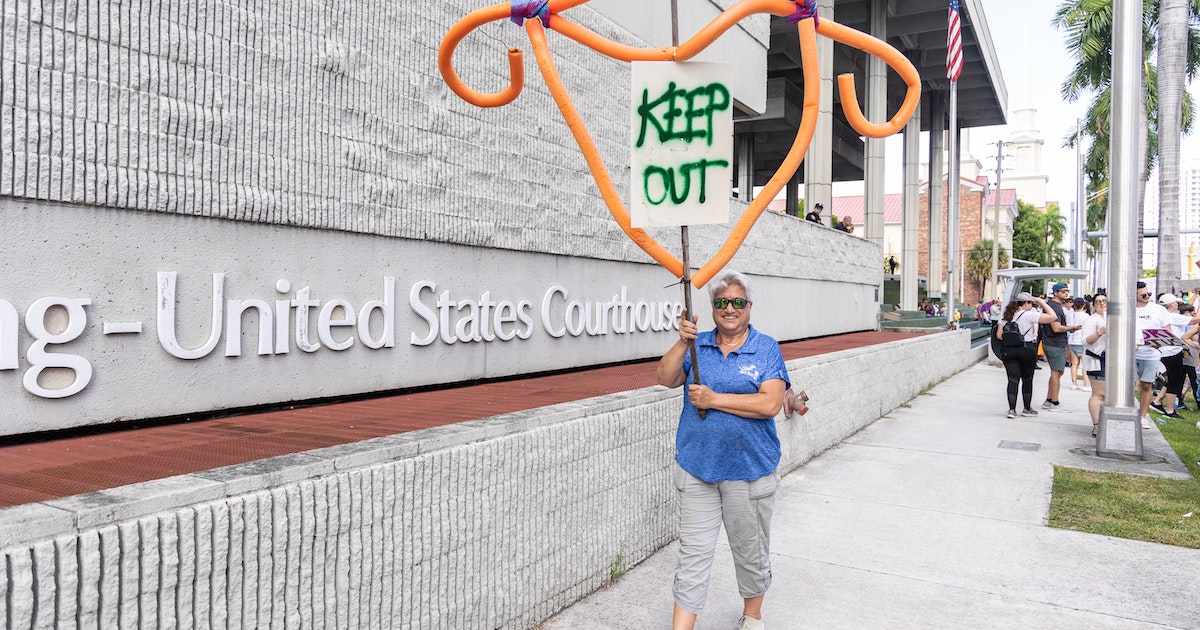Florida abortion advocates got one step closer on Friday to putting access to the procedure on the state’s ballot in November, even as Republicans continue to try and block them.
Advocates needed to collect at least 891,523 valid signatures before February 1 to get the measure on the ballot. As of Friday, the Florida Division of Elections has verified 911,112 signatures—and more could come. Floridians Protecting Freedom, the group that helped organize the statewide signature collection, says they have gathered 1.4 million signatures.
The amendment would allow abortion access up until viability, or when the fetus can survive outside the uterus. This is generally estimated to happen at around 24 weeks.
Florida currently bans abortion after 15 weeks. That law went before the state Supreme Court in September. If the court upholds the law, then an even more restrictive measure banning abortion at six weeks—before most people know they are pregnant—will go into effect. Florida Governor Ron DeSantis signed the hugely unpopular bill in April.
If the abortion amendment makes it onto the ballot, then it has a strong chance of winning. Florida requires 60 percent of voters to support amending the state constitution. A February study by the Public Religion Research Institute found that 64 percent of Floridians believe abortion should be legal in all or most cases—more than enough to defeat the state’s minimum threshold. In fact, a good chunk of the petition signatures came from Republican voters.
That has Republican leaders running scared. State Attorney General Ashley Moody, a DeSantis ally, has asked the Florida Supreme Court to disqualify the amendment. She argues the language is misleading, claiming that the use of the word “viability” could have multiple meanings. The state’s high court will hear arguments on February 7.
In November, state Republican Representative Rick Roth quietly introduced a measure to raise the threshold for ballot initiatives to 66.7 percent of votes—just above the definite level of support for abortion access in Florida. The measure has not left the committee, and it’s unclear how far it will actually go. Roth introduced a similar measure in 2022 that easily passed the state House, but it failed in the Senate.
But even if Roth’s bill fails again, it’s a sign of just how far Republicans are willing to go to block people from voting on abortion access. Ballot initiatives have led to multiple major abortion rights wins, even in otherwise deep-red states. Since Roe v. Wade was overturned, multiple Republican-led states have put the question of abortion on the ballot—and every single time, voters choose to dramatically increase protections.


